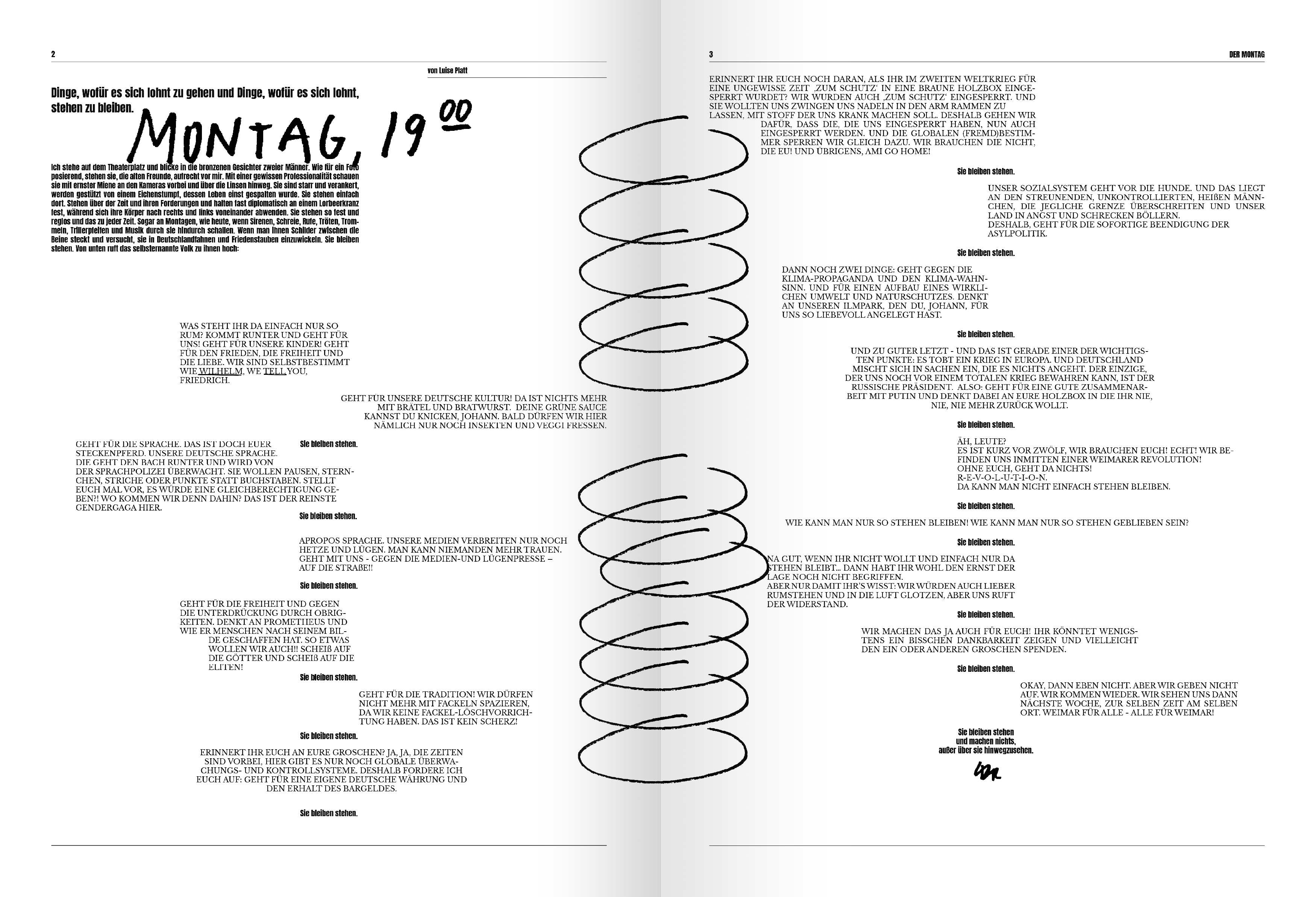D
er
M
ontag

D
er
M
ontag

For over two years, numerous 'dissatisfied' people have been taking to the streets in Weimar to express their discontent with the government. Their concerns include shedding light on so-called 'Corona crimes,' securing a free future for children, peace in Germany, opposition to insects in food, preserving cash, and saving the social welfare system. Due to the broad range of topics and demands, it seems almost impossible to sum up these Monday demonstrations under a single heading. While the predictions of a 'hot autumn' of protests in late autumn and winter of 2022 did not materialize, the flame of resistance within the Monday demonstrations appears to be reignited by each new crisis.
Against the backdrop of a looming climate catastrophe, we face a society-wide crisis and are thus confronted with the question of how to address this protest and the simmering discontent. The spread of so-called 'alternative' media and reporting significantly strengthens a protest identity. Out of skepticism and rejection of established and public media, Telegram groups, YouTube channels, internet forums, and print media have become the preferred means for disseminating disinformation and internal networking. These channels allow information to spread particularly widely and with minimal barriers. Newspapers are used at demonstrations to create an alternative truth to the established 'mainstream media.'
Through sensationalist headlines in the so-called Democratic Resistance or conspiracy-theorist and anti-state comments like those in the pamphlets of Weimar's 'singer-songwriter' Vincent Herb, a counter-reporting style has developed that merits close scrutiny.
The presentation and distribution of these newspapers in public spaces aims to critically re-appropriate the print medium to offer an alternative to the alternative. In the newspaper Der Montag, voices that critically examine or engage with the Monday demonstrations—or have connections to the movement in other ways—are given a platform. Through various perspectives, this format aims to show that in Weimar, there exists a broad public that takes a stance against the Monday demonstrations. Der Montag represents a collection of comments, though it does not claim to be exhaustive.
Enjoy reading!



